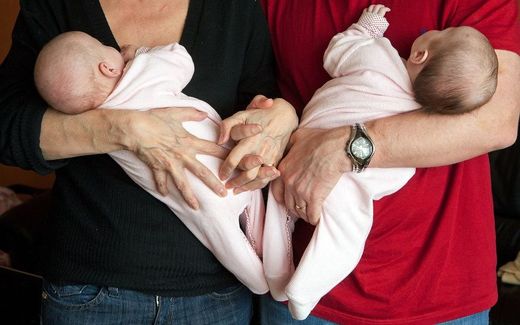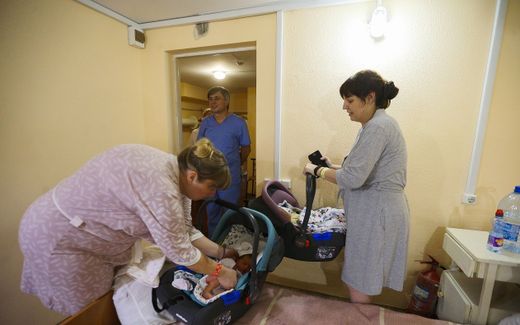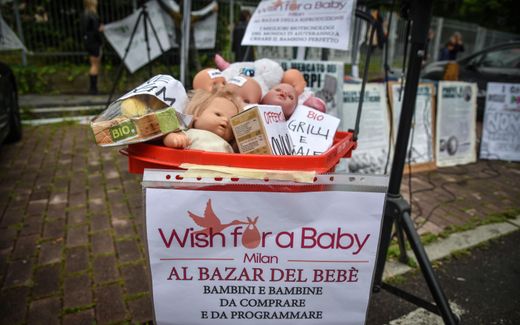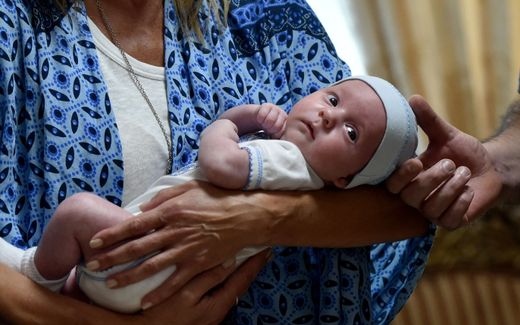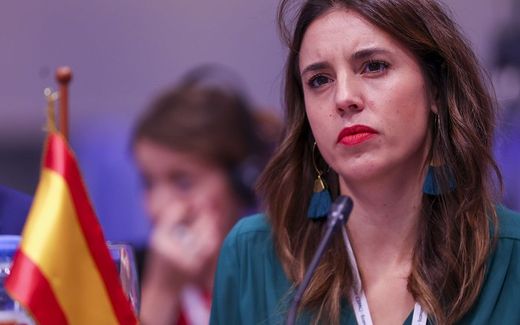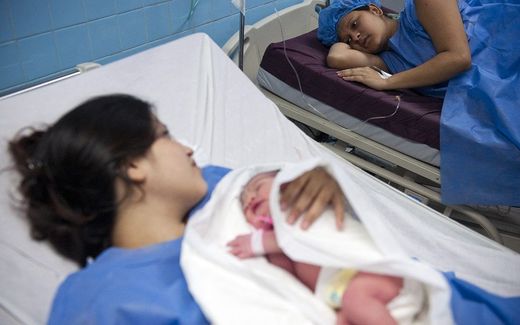Belgian ethics body asks for legalisation of surrogacy
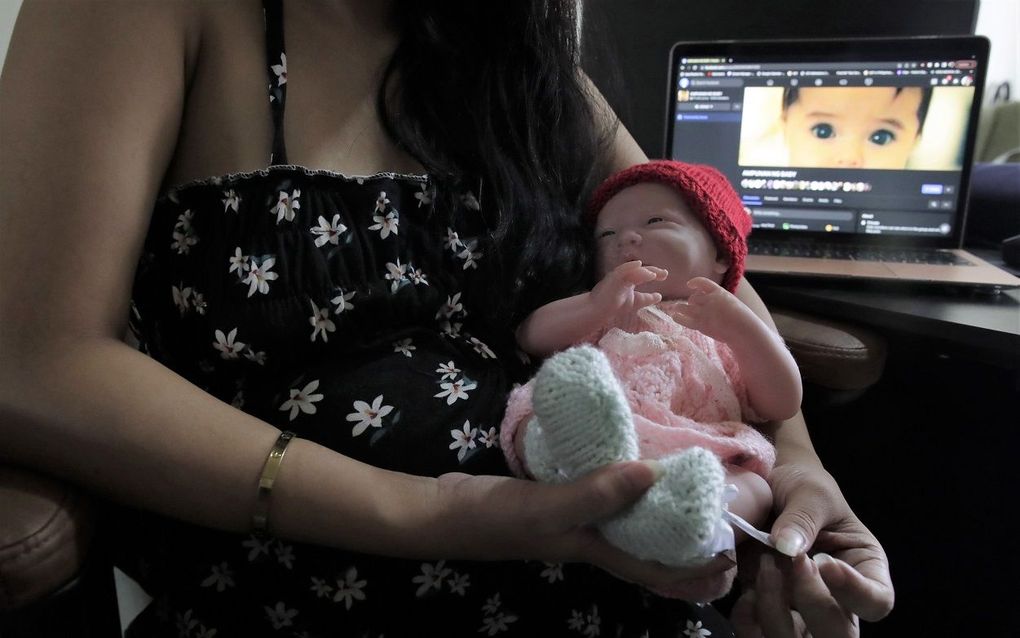
The report is brief on the child’s best interests. beeld EPA, Francis R. Malasig
Western Europe
Everybody has the right to a surrogate mother. That is the advice from the official bio-ethics committee in Belgium. According to this highly respected body, the threshold for hiring a surrogate mother should be lowered. It also asks for a different name for surrogate mothers.
Anyone who does not have the opportunity to bear a child of their own should have access to surrogacy, the Committee says. There should be no discrimination on gender, orientation or financial situation. This means gay couples or single people should also be entitled to it. Furthermore, the Committee sees surrogacy “as a medically assisted reproduction, like the other medically assisted reproductions, for which there is financial support.”
When Maximilian was born, his parents were some 8,000 kilometres away from him. In fact, the Belgian boy was brought into the world by an American surrogate mother. His parents, a gay couple, were late for the delivery and flew to Los Angeles a day after Maximilian came into the world to embrace their child. “He was just a little too early,” his father, a well-known doctor, wrote on Twitter.
Surrogacy abroad often remains under the radar of national authorities. And this is at a time when cross-border surrogacy is becoming more commonplace. Gay couples especially move abroad because surrogacy is unavailable in their home country. And that has to change, says Social Affairs Minister Frank Vandenbroucke. He, therefore, asked for a new opinion from the Advisory Committee on Bioethics. That came out with a report on Wednesday.
At the moment, there is no legal framework for surrogacy in Belgium. It is tolerated, but parents who use it must start an adoption process after birth.
Wish
One of the report’s main findings is that the legal security of the future child and the intended parents must be strengthened. “After all, the child is created by the wish of those parents,” the Belgian newspaper De Standaard writes. “Genetic kinship is not a condition. It is never the intention that the woman carrying the child becomes the mother.” The Committee, therefore, advises against the word ‘surrogate mother’ but advises ‘surrogate woman’ instead.
Despite the need to strengthen the rights of the child and the wishing parents in surrogacy, the Committee states that the surrogate mother has the right to “bodily autonomy.” They can choose to make their body available to another, but coercion should be avoided. This is why the Committee is against commercial surrogacy, in which the surrogate mother benefits financially.

Surrogacy in Belgium should, therefore, only be offered voluntarily and out of charity (altruistic surrogacy). In addition, the surrogate mother retains the right to terminate the pregnancy “under specific circumstances”. Thus, the reproductive right of wishing parents is not absolute.
Interests
The report is brief on the child’s best interests: children born through surrogacy develop as well as children conceived without medical intervention, the Committee states. The Committee bases this on a study in which 40 families were followed for 20 years. A footnote in the report says that some children had identity problems around the age of seven. Still, these had disappeared by the age of 10. They were able to adjust, according to the report: “In adolescence, surrogate children showed also showed high levels of psychological and emotional adjustment.”
The Committee also does not comment on a children’s right to genetic parentage information. Recently, the Committee wrote another report in which they advised families to “be open about this”. Families who are open about their genetic history are doing better than families in which secrecy prevailed, the Committee argued.
Court
It would be best for the adult parties involved to reach an agreement in advance, the Committee notes. However, the Committee did not reach a consensus on when such an agreement is binding. Can the surrogate woman still decide not to give up the child? Some think not – an agreement is an agreement. Others say that a court should decide in the event of a dispute.
The Committee does not consider it useful to continue distinguishing how the pregnancy comes about. It is even allowed with embryo donation – which would lower the threshold considerably.
Yet there is no unanimity on whether the surrogate woman can become pregnant with her own egg. Some members of the Advisory Committee feel that this would risk creating too strong a bond between surrogate woman and child.
Openness
Whether the Committee’s report will be politically successful remains to be seen. “We feel an openness on the subject” and the “willingness to offer a reassuring framework to the families concerned”, replied one of the authors to Sudinfo. Whether that will stop people like the parents of Maximiliaan going abroad, remains to be seen. Research shows that the majority of surrogacy agreements are commercial. There are not that many women willing to carry someone else's baby for free.

The new report comes some 20 years after an earlier report on the issue. In 2004, the Committee said surrogacy is an acceptable ethical practice if done under good conditions. Back then, the Committee defended the pregnant woman remaining the mother until birth.
Surrogacy does not often happen in Belgium – the most recent 2019 figure speaks of 33 assisted pregnancies by five fertility centres. In addition, a large proportion of applications are rejected in Belgium. Out of 230 applications since 1997, 77 were accepted in one facility.
Related Articles


